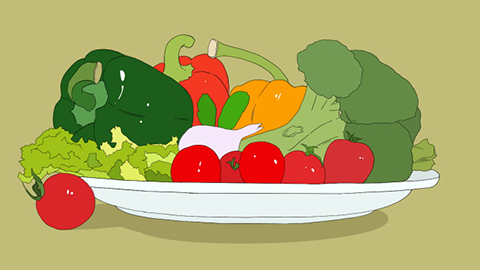What are the ten dietary禁忌 for ovarian cysts?
Ovarian cysts generally do not have a so-called "top ten dietary taboos," but patients are usually advised to reduce consumption of spicy and stimulating foods, high-sugar foods, high-fat foods, hormone-containing tonics, raw and cold foods, preserved or smoked foods, alcoholic beverages, moldy foods, high-caffeine drinks, and allergenic foods (trigger foods), to avoid worsening discomfort. The specific analysis is as follows:

1. Spicy and stimulating foods: Such as chili peppers, Sichuan pepper, ginger, garlic, etc. These foods can easily stimulate the body, possibly aggravating pelvic congestion and intensifying discomfort caused by cysts, which is unfavorable for stabilizing the condition.
2. High-sugar foods: Such as candies, cakes, and desserts. Long-term intake may lead to blood sugar fluctuations, disrupt metabolic balance, indirectly promote cyst growth, and increase difficulty in controlling the condition.
3. High-fat foods: Such as fried foods, fatty meats, and animal offal. Excessive fat intake may affect hormone levels, potentially stimulating cyst enlargement, increasing bodily burden, and hindering recovery.
4. Hormone-containing tonics: Such as royal jelly, propolis, ginseng, etc. These supplements may contain hormonal components that interfere with the body's natural hormone balance, stimulate cyst growth, and should be strictly avoided.
5. Raw, cold, and cooling foods: Such as ice cream, chilled drinks, and sashimi. Cold foods may impair blood and qi circulation, possibly causing stagnation in the pelvic area and worsening symptoms like abdominal pain and heaviness caused by cysts.
6. Preserved and smoked foods: Such as pickles, cured meat, and smoked sausages. These foods contain harmful substances like nitrites; long-term consumption may impair bodily functions and increase the risk of cyst-related complications.
7. Alcoholic beverages: Such as white spirits, beer, and wine. Alcohol can irritate organs, disrupt hormone metabolism, potentially destabilize cysts, damage liver function, and hinder recovery.
8. Moldy foods: Such as moldy peanuts, corn, or fruits. These contain toxins like aflatoxin, which harm health, may worsen the condition, and even trigger other complications.
9. High-caffeine beverages: Such as strong tea and coffee. Excessive caffeine intake may overstimulate the nervous system and disrupt endocrine stability, potentially adversely affecting cysts. Intake should be controlled.
10. Allergenic or inflammation-triggering foods ("fawu"): Such as lamb, dog meat, and seafood (e.g., shrimp, crab). These foods may trigger inflammatory responses in the body, exacerbate cyst-related discomfort, and impede stabilization and recovery.
Daily diet should primarily be light, easily digestible, and nutritionally balanced, with increased intake of fresh vegetables, fruits, and whole grains. Regular follow-up ultrasounds are recommended to monitor cyst size and morphology. If discomfort persists despite dietary adjustments, or if the cyst abnormally enlarges, prompt medical consultation is necessary to receive professional treatment and care guidance.






